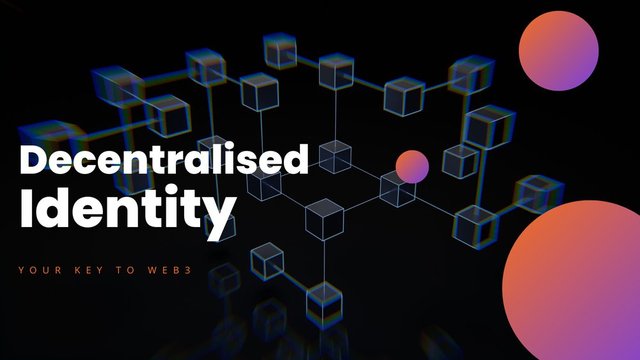
Non-fungible tokens (NFTs) have become a hot topic in the world of cryptocurrency and blockchain technology. They provide a unique way to represent ownership of digital assets, such as artwork, music, and collectibles, that cannot be replicated or duplicated. As the popularity of NFTs continues to grow, the need for a secure and reliable marketplace for buying and selling them has become increasingly important. In this blog, we will discuss the benefits of using decentralized identity verification in an NFT marketplace and how it can help to build a more trustworthy and transparent ecosystem for NFTs.
The current state of NFT marketplaces:
Currently, many NFT marketplaces rely on traditional methods of identity verification, such as email address and password authentication or KYC (Know Your Customer) processes. While these methods can be effective, they are not without their drawbacks. For example, email addresses and passwords can be hacked, and KYC processes can be time-consuming and intrusive. Additionally, many users may not trust centralized entities with their personal information, especially given recent high-profile data breaches.
The benefits of decentralized identity verification:
Decentralized identity verification offers a solution to these problems by providing a more secure and trustworthy method of identity verification. Instead of relying on a centralized entity to verify identities, decentralized identity verification uses blockchain technology to create a decentralized network of verifiers who can attest to the identity of users without the need for a central authority. This system can provide a higher level of security and privacy while also reducing the risk of data breaches and fraud.
Comparison with traditional identity verification methods:
Traditional methods of identity verification, such as email and password authentication or KYC, have several drawbacks that decentralized identity verification can overcome. For example, email addresses and passwords can be hacked, while KYC processes can be time-consuming and intrusive. Decentralized identity verification offers a more secure and privacy-focused method of identity verification that does not rely on a central authority. This can lead to greater trust and transparency between buyers and sellers.
Technical implementation:
To implement decentralized identity verification in an NFT marketplace, blockchain technology and smart contracts would be used. Users would create a decentralized identity on the blockchain, which would be used to verify their identity when buying or selling NFTs on the marketplace. The identity would be linked to their digital wallet, ensuring that only the rightful owner of an NFT can sell or transfer it. Smart contracts would also enable automatic transfer of ownership when a sale is made.
Use cases:
Decentralized identity verification can be used in a variety of NFT marketplaces, including those focused on artwork, music, collectibles, and other digital assets. For example, a marketplace for buying and selling digital art could use decentralized identity verification to ensure that buyers are purchasing artwork from the actual artist, rather than a fraudulent seller.
Trustworthiness and transparency:
Decentralized identity verification can promote trust and transparency between buyers and sellers by providing a more secure and reliable method of identity verification. This can help to reduce the risk of fraud and increase confidence in the overall NFT market. Additionally, by using blockchain technology and smart contracts, the ownership and transfer of NFTs can be tracked transparently, providing greater transparency to all parties involved.
Challenges and limitations:
While decentralized identity verification offers many benefits, there are also challenges and limitations to consider. One potential challenge is the scalability of the technology, as blockchain networks can become congested during periods of high activity. Additionally, there may be regulatory challenges and legal considerations to navigate, as decentralized identity verification could have implications for data privacy and ownership rights.
How decentralized identity verification can be implemented in an NFT marketplace?
Implementing decentralized identity verification in an NFT marketplace requires the use of blockchain technology and smart contracts. Users would be required to create a decentralized identity on the blockchain, which would be used to verify their identity when buying or selling NFTs on the marketplace. The identity would be linked to their digital wallet, ensuring that only the rightful owner of an NFT can sell or transfer it. The use of smart contracts would also enable the automatic transfer of ownership when a sale is made, reducing the risk of fraud and ensuring a more efficient and seamless process.
Conclusion:
In conclusion, the use of decentralized identity verification in an NFT marketplace can provide numerous benefits, including increased security, privacy, and transparency. As the NFT market continues to grow, it is essential to build a more trustworthy and reliable ecosystem for buying and selling these digital assets. Decentralized identity verification offers a promising solution to this problem and could help to revolutionize the way NFT marketplaces operate in the future.